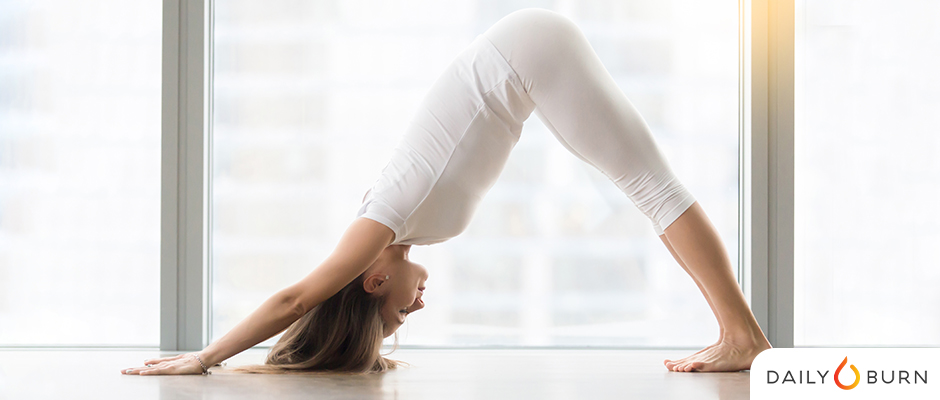
Jalandhara Bandha is one of most well-known yoga poses. Although the pose is simple, it can cause neck strain. To avoid neck pain, practice this pose only when you're fully clothed, without exposing your neck to excess friction or weight. Your chest should raise to meet your neck during this pose. It can be dangerous and uncomfortable if it falls too low. Dee is a Colorado-based freelance writer who specializes on home improvement.
Lock your throat
The Throat Lock is a great neck stretching exercise. Because we spend so much time staring at screens, our necks are often tense and constrictive. By releasing the throat chakra, we open up our throats and improve our self-expression. It can also improve thyroid health. Read on to learn more about this great technique and how to incorporate it into your daily life!
You will need to start by sitting cross-legged. Now lift your sternum, and then hunch forward. Now, lift your head and take a deep inhale. Hold the pose for three to ten breaths. This sequence should be repeated three to four times per day. If you are pregnant or have any medical conditions, this pose is not recommended.
Yoga with the throat lock

The Throat lock is a yoga technique that restricts prana flow upwards. This pose is most often performed during periods of breath retention, but can also be practiced without holding your breath. To practice the throat lock, first you need to sit in a meditative position and raise your upper chest and sternum. Then, lower your chin. Another option is to place a towel underneath your chin.
The throat lock in yoga is an extremely effective stretch for the neck, which is notorious for holding tension from sitting in front of a computer screen for long periods of time. This pose also strengthens the throat chakra, which promotes better communication and self-expression. The throat lock has been shown to be beneficial for the thyroid. For beginners, it is best that you hold the neck lock for at least three to six minutes before moving on.
Throat lock in pranayama with breath retention
There are many ways you can practice Throat Lock. The basic technique is to sit in a seated posture and extend your knees forward. To engage Mula or Uddiyana, your pelvic floor must be drawn up and the abdominals drawn in. Your chin will begin to draw back towards the chest and create a pit in your throat after you've engaged these bandshas.
The Throat Lock is an effective meditation technique, especially if done properly. It's a powerful stretching of the neck which can hold tension due to screens. The throat chakra is located in your throat. Using throat lock can help you communicate more clearly and express yourself better. It can also help your thyroid health. Try practicing the technique with ujjayi breath if you have trouble getting throat lock.
Benefits of throat lock

The benefits of jalandhara bandha are numerous. This asana is practiced by bending forward and pressing the chin against the throat. Many believe that this asana improves the function the thyroid and parathyroid. It is believed that it enhances the communication between the mind, body, and throat chakra. Additionally, the throat lock lowers blood pressure and peripheral flow. This practice helps yogis focus better.
The muscles of the neck, jaw, throat, and throat restrict the flow of energy upward during this yoga position. You can use it to hold your breath, but you may find that it is useful for retaining breath. The practitioner should take a meditative, comfortable position and raise the sternum and upperrib cage while lowering his or her chin. The practitioner should not let the washcloth touch his or her skin during this asana.
FAQ
Why is mental health important for students?
Mental health is essential for students as they must be able to concentrate on school while also being able to learn well academically. If you don't feel good, you won't be able to perform well in school. Depression can lead to students missing class and poor grades. This can lead to dropping out from high school or college.
You should talk to your parents and teachers if you have depression. They can help you get all the support you need.
Not everyone with depression requires medication. Talk therapy is effective for many people. Talk therapy is effective for many people.
Why is mental health important?
Everyone needs mental health. Mental health is vital for anyone. It is important to keep your mind healthy.
Stress can cause mental problems and even physical symptoms. This can lead to problems like headaches, stomach aches and backaches. It is important to take care for our bodies and minds in order to maintain a healthy balance.
What should I do if I am experiencing mental health issues?
If you are suffering from any type of mental illness, it is important to seek professional help. Perhaps you've been through trauma or suffered abuse in the past. It is possible that you have had to deal with trauma in your past.
You might also have an eating disorder, addiction or other type of mental illness. These disorders can lead to severe life-altering consequences.
It is best to not try to solve them all by yourself. Talk to someone who has experience with these issues. You can get the support you need from a professional therapist to help you overcome these difficulties.
Statistics
- Neuropsychiatric diseases are the leading cause of death and disability in the U.S., accounting for 18.7 percent of all years of potential lifespan loss and premature mortality.
- More than 40 million adults in the United States have an anxiety disorder, but less than 37% of people seek mental health treatment for their symptoms. (talkspace.com)
- In any given year, an estimated 18.1% (43.6 million) of U.S. adults ages 18 years or older suffered from any mental illness, and 4.2% (9.8 million) (healthypeople.gov)
- Appropriate nutrition and exercise are likely among the most efficacious and cost-effective positive mental health interventions. (ncbi.nlm.nih.gov)
- It means no drinking any alcoholic beverages and no taking any drugs that aren't 100% natural.
External Links
How To
How to improve memory
Memory is one of those things that everyone wants to be able to remember better. Unfortunately, memory impairment is something that all of us will experience at one time or another. More than half (50%) of Americans over 65 have some form of dementia.
No matter if you are dealing with Alzheimer's disease, dementia or any other form of cognitive decline, there are many options to improve your memory. Here are three simple steps to take right away:
-
Get More Fruits and Vegetables. Vegetables and fruit contain vitamins, minerals, antioxidants, fiber, and other phytochemicals that can improve brain function. They also contain essential nutrients that protect against neurological disorders.
-
Get enough sleep. Lack of sleep has been linked with memory loss and poor concentration. Make sure you get seven to eight hours of restful sleep each night.
-
Take a Walk. Walking stimulates blood circulation to the brain, which improves memory. Walking helps you look slimmer, healthier, and more energetic.